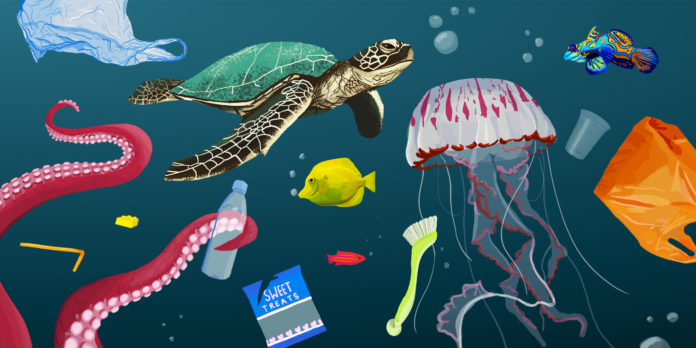Introduction
The world’s oceans are vast and awe-inspiring, harboring diverse and delicate ecosystems that support a wide array of marine life. However, this delicate balance is under threat from an insidious and ever-growing problem: plastic pollution. Over the past few decades, the exponential rise in the production and consumption of plastic has led to its pervasive presence in marine environments, causing severe consequences for ocean ecosystems. This article delves into the profound impact of plastic pollution on marine life, habitats, and the overall health of our oceans.
The Plague of Plastics
Plastics have become an integral part of modern life due to their versatility, durability, and low cost. Unfortunately, this convenience comes at a staggering environmental cost. Each year, millions of tons of plastic waste find their way into the oceans through improper waste management, littering, and inadequate recycling systems. These plastics persist for hundreds of years, gradually fragmenting into smaller pieces known as microplastics, which pose a significant threat to marine ecosystems.
The Silent Killers
Marine creatures, from the smallest plankton to the largest marine mammals, are being affected by the presence of plastics in their habitats. Plastic debris, often mistaken for food, is ingested by a wide range of marine species, causing severe health issues and even death. Turtles mistake plastic bags for jellyfish, seabirds consume indigestible plastic fragments, and whales become entangled in fishing nets and other debris. These encounters often lead to malnutrition, internal injuries, suffocation, and entanglement, resulting in population decline and biodiversity loss.
Disturbing the Food Chain
Plastic pollution disrupts the delicate balance of marine food chains. As smaller marine organisms consume microplastics, these contaminants accumulate and are subsequently transferred to larger predators. This bioaccumulation of toxins such as bisphenol A (BPA) and polychlorinated biphenyls (PCBs) poses a serious threat to both marine life and humans who consume seafood, potentially causing reproductive abnormalities, hormonal disruptions, and an increased risk of various diseases.

Altered Habitats
Marine habitats, such as coral reefs and seagrass beds, face severe degradation due to plastic pollution. Coral reefs, known as the “rainforests of the sea,” are particularly vulnerable. Plastic debris entangles and suffocates corals, inhibiting their growth and hindering the recruitment of new corals. Additionally, the presence of microplastics can hinder the photosynthetic capacity of seagrass, impairing the entire ecosystem’s productivity and resilience.
Changing Ocean Chemistry
Plastic pollution not only impacts marine life but also alters the chemical composition of the oceans. Plastics contain a variety of additives, including phthalates and flame retardants, which can leach into seawater. This leaching process, exacerbated by sunlight and wave action, leads to chemical pollution, affecting the physicochemical properties of seawater. These alterations may disrupt vital biological processes such as photosynthesis, nutrient cycling, and oxygen production, thereby jeopardizing the entire oceanic ecosystem.
A Global Issue Requiring Urgent Action
Plastic pollution is a global problem that demands immediate attention. Recognizing the gravity of the situation, governments, organizations, and individuals have started taking steps to combat plastic pollution. Initiatives such as the ban on single-use plastics, improved waste management systems, and the development of sustainable alternatives are crucial to curbing the growth of plastic pollution.
Conclusion
The impact of plastic pollution on ocean ecosystems is nothing short of an environmental catastrophe. From the smallest organisms to the largest marine creatures, plastic pollution poses a significant threat to biodiversity, food chains, and the overall health of our oceans. It is our collective responsibility to address this issue head-on, adopting sustainable practices, promoting recycling, and reducing our reliance on single-use plastics. Only through concerted efforts can we hope to restore the delicate balance of our oceans and secure a healthier future for marine ecosystems and all life that depends on them.

